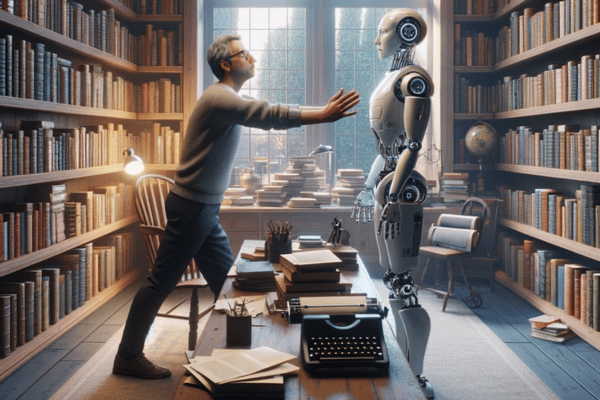On November 15, 2023, the European Council of Literary Translators’ Associations (CEATL, known as CEATL in French) released a “Statement on Artificial Intelligence” to articulate the shared beliefs and requests of its member organizations concerning the utilization of generative AI within the publishing sector. This federative body comprises 34 translators’ associations spanning Europe.
Established in 1993, CEATL serves as a platform to consolidate advocacy endeavors for the benefit of approximately 10,000 individual literary translators representing 26 European nations. The organization’s initiatives in line with its core mission to “enhance the status and working conditions of translators” encompass advocacy campaigns and public declarations, such as the Statement on Artificial Intelligence, aimed at providing members with a cohesive voice in addressing economic, legal, and social concerns.
The communication from CEATL regarding AI touches upon various contentious issues related to authorship and intellectual property rights, forming part of a series of collective statements on this topic issued by European associations uniting authors, translators, and performers throughout 2023.
Among these statements is one endorsed by CEATL on September 26, 2023, in conjunction with 12 other entities under the European Writers’ Council (EWC) AISBL. The EWC, comprising 49 organizations of writers and translators from 31 countries, jointly advocates for a human-centric approach to generative AI, emphasizing informed consent, transparency, fair compensation, and contractual practices.
In its November 15 declaration on AI, CEATL outlined several requests, prefaced by the assertion that “Literary translation exists through ART: Authorization, Remuneration, Transparency,” and emphasizing that “any transfer of copyrighted material for commercial purposes, such as AI training, should always be subject to negotiation by the author as an opt-in clause.”
Additional demands put forth by CEATL focus on enforcing transparency standards for AI enterprises and opposing the allocation of public funds to generative AI applications in publishing.
Europe’s AI Act
Commencing in April 2021, various European institutions and advisory bodies commenced the drafting of documents, including discussion synopses (“opinions”), reports, and preliminary proposals for the European AI Act.
While the primary draft of the legislative proposal available online dates back to 2021, deliberations and debates over the legal framework persisted until the day prior to CEATL’s statement release: on November 14, certain EU member states, including France and Germany, rebuffed specific regulations over concerns that they could disadvantage European businesses, effectively halting negotiations.
CEATL was among the 13 signatories on a statement issued in response to the suspension of AI Act negotiations, termed an “Urgent Letter of Concern.” Published by the European Writers’ Council, the letter urges officials to reconsider “the stance of the dissenting countries and return to the consensus point achieved in October,” referencing the accord reached on October 24 during the EU Technical Meeting regarding a foundational model (defined during the meeting as an “AI model capable of proficiently executing a wide array of distinct tasks”).
Translators, not “Translatoids”
Within its discourse on generative AI, CEATL expressed its stance on machine translation, asserting that “Machines are not translators but ‘translatoids.’ They do not translate; they generate textual content.”
The statement further contends that “literary translators render texts imbued with cultural, social, and historical contexts for readers who are likewise immersed in their unique contexts. Translation necessitates an understanding of these contexts and adeptness in creative writing. No machine can replicate this process without substantial human input.”






